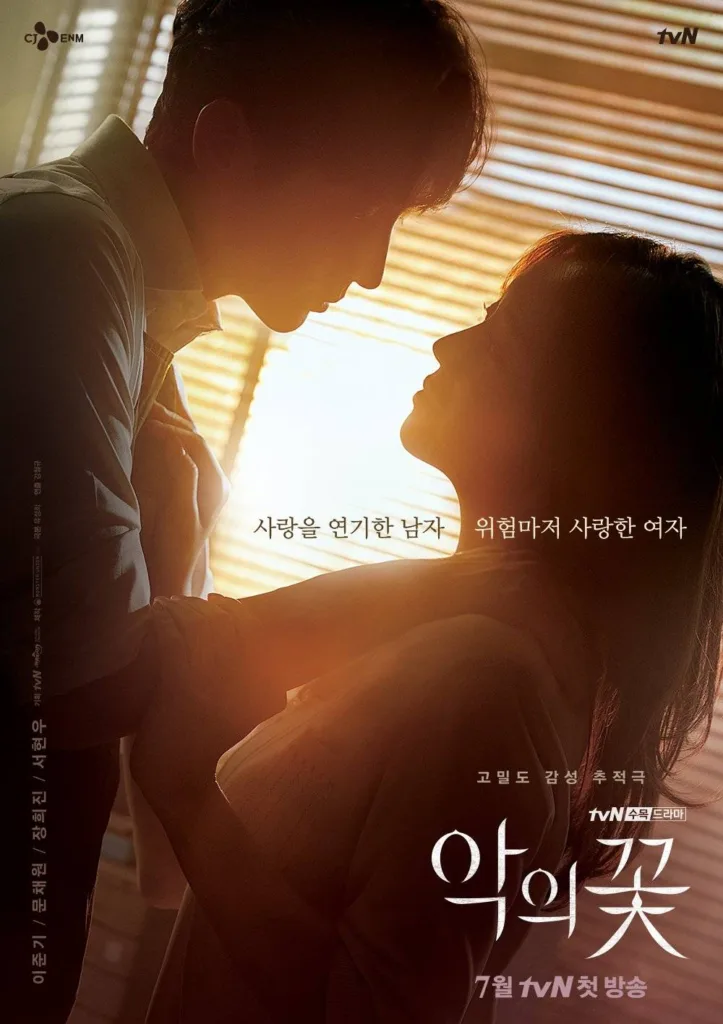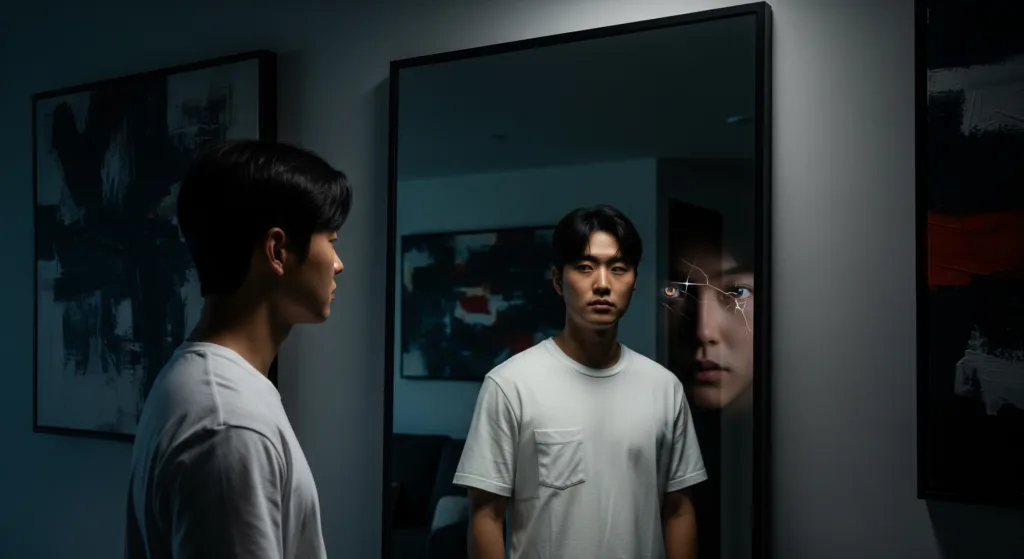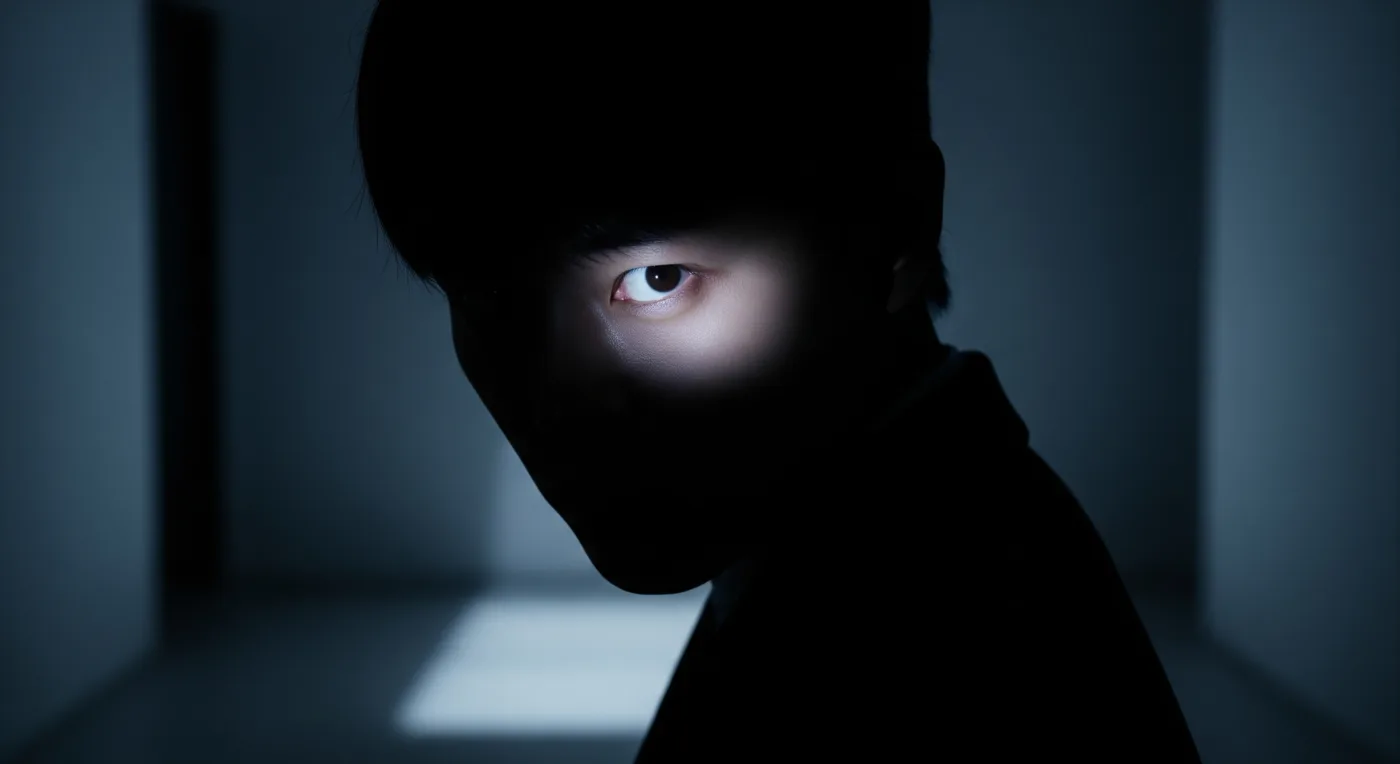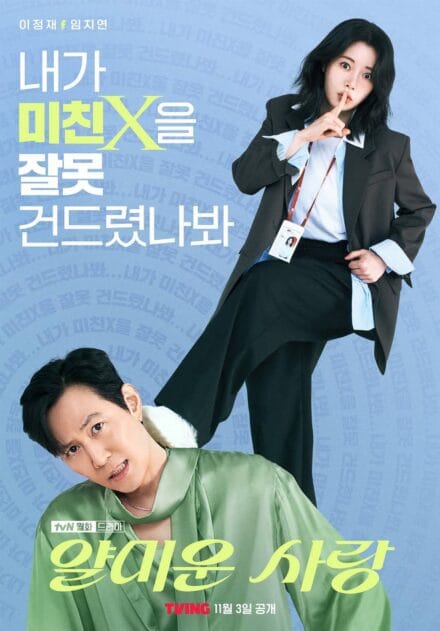Ever felt that unsettling shift in a K-drama, when a seemingly innocent romance subtly twists into a dark exploration of manipulation and obsession? That’s the electrifying jolt of the Korean psychosexual thriller, a genre uniquely unafraid to expose the dangerous undercurrents of human relationships. The global video streaming market was valued at an astonishing over $100 billion in 2024, and with projections reaching nearly $150 billion by 2027, Korean content is undeniably a leading force. Yet, amidst this deluge, truly captivating narratives that expertly dissect the intimate, often perilous, links between psychology, power, and desire can still feel like a rare find. You’re past the predictable. You crave the kind of suspense that makes your stomach clench, where the villain might be the one sharing a bed with the protagonist, and every act of affection could be a calculated move. If you’re ready to abandon superficial thrills and immerse yourself in stories where love becomes a weapon and desire a dangerous game, then prepare yourself. This definitive guide will equip you with the knowledge to decode the genre’s most compelling elements and unlock a curated selection of films and series that will challenge, thrill, and utterly consume you.

For both newcomers overwhelmed by the sheer volume of acclaimed Korean thrillers and seasoned viewers seeking their next intense watch, navigating this specific, potent subgenre can be a challenge. This guide is designed to help you understand what makes Korean psychosexual thrillers so compelling, explore their recurring themes and tropes, highlight some of the best examples in both movies and series, including recent releases and the unique blend of love and thrillers korea is known for. Prepare to delve into stories that are as thought-provoking as they are thrilling.
What Defines a Korean Psychosexual Thriller? Genre and Core Concepts
At its heart, a psychosexual thriller is a genre that meticulously weaves together elements of psychological suspense, palpable sexual tension, and inherent danger. Unlike straightforward thrillers that might focus solely on crime or action, these narratives are deeply invested in the mental and emotional states of individuals, particularly where those states are intertwined with desire, power dynamics, and sexuality.
Beyond the Mind: The Blend of Psychology and Sexuality
These films and dramas immerse the audience in characters’ inner worlds, forcing us to confront their delusions, insecurities, and trauma. The suspense often arises not just from external threats, but from the unstable minds and complex motivations of the characters themselves. Where the “psychological” aspect focuses on the why – the deep-seated issues driving behavior – the “psychosexual” element adds a layer of intensity by connecting these internal struggles directly to themes of sex, intimacy, attraction, and the power dynamics that arise within sexual or emotionally charged relationships.
Korean storytellers have demonstrated a particular prowess in this area, often approaching sensitive and even taboo topics with a directness that can be startling. They aren’t afraid to explore the discomfort, the danger, and the vulnerability inherent in sexual relationships, particularly when warped by manipulation, obsession, or past trauma.
The Hybrid Appeal: Exploring Love and Thrillers Korea
A fascinating subset of this genre, particularly prominent in K-dramas, is the romantic psychological thriller. This hybrid genre bravely blends the often-conflicting elements of romance – typically associated with love, warmth, and happy endings – with the dark undercurrents of psychological thrillers, involving suspense, dark motives, and frequently unhappy or ambiguous conclusions.
The result is a compelling mix of drama, love, deep psychological twists, danger, and desire. These stories might feature relationships where love is tainted by suspicion, attraction masks sinister intentions, or past trauma threatens to destroy present happiness. They play on the audience’s desire for romance while simultaneously creating unease and suspense, forcing viewers to question the true nature of the bonds they are witnessing. This unique fusion is a hallmark of some of the most memorable Korean series in the thriller genre.
Dark Mirrors: Common Themes and Tropes in the Genre
Korean psychosexual thrillers are potent because they tap into primal fears and desires, holding a mirror up to the uncomfortable truths of human nature. Several recurring themes and tropes contribute to the genre’s distinctive feel.
Psychological Depth and Disturbing Narratives
The narratives frequently explore dark and compelling themes, including:
- Sexual exploitation, emotional manipulation, sexual violence, and sexual identity: Examining how individuals can be used, controlled, or struggle with their own identity within dangerous interpersonal dynamics.
- Obsession, manipulation, and power dynamics: Showing how intense fixation can lead to destructive behavior and how power imbalances in relationships are exploited.
- Mystery: Keeping the audience guessing about characters’ true intentions and motivations, often until the very end.
- Morality and dysfunctional relationships: Questioning ethical boundaries and depicting relationships that are unhealthy, abusive, or built on deceit.
- Trauma, abuse, disorders, and insecurities: Revealing how present actions are often rooted in a “dark” and “disturbing” past, and how unresolved psychological issues drive characters.
- Challenging assumptions: Forcing viewers to question their understanding of human relationships and confront uncomfortable realities.
- Societal constraints and challenges faced by women: Exploring the specific pressures and dangers faced by female characters within patriarchal or judgmental societies.
- Misrepresentation or romanticization of mental health disorders: While aiming for depth, the genre sometimes treads a fine line in its portrayal of psychological conditions.
- Betrayal, revenge, and retribution: Classic thriller elements amplified by the intense emotional stakes of personal relationships.

Korean dramas, in particular, have increasingly addressed taboo topics in their storylines, such as intellectual disability, frank depictions of sex, domestic violence, relationships that defy traditional age gaps, divorce, perceptions towards foreigners, lookism (judgment based on looks), and the societal judgment faced by single parents. While not exclusive to psychosexual thrillers, this willingness to engage with sensitive societal issues often intersects with the genre’s exploration of dysfunctional relationships and hidden desires.
Recurring Figures and Narrative Devices
Certain narrative tools and character archetypes frequently appear:
- Power dynamics: Stories often hinge on power imbalances where one character seeks control over another, using intimacy or attraction as leverage.
- Manipulation: Characters adeptly use charm, wit, sexual prowess, lies, deceit, and sometimes violence to achieve their goals, often preying on others’ desires or vulnerabilities.
- Obsession: Characters become fixated on each other, leading to dangerous escalation, including stalking, violence, or murder.
- Dual identities: Characters harbor hidden, often sinister, aspects, presenting one face to the world while concealing a darker nature (e.g., a serial killer who is a respected member of society).
- Sexuality: A key theme, used not just for titillation but as a tool for manipulation or control. Sexual tension is frequently a major driver of the plot.
- Femme fatale: A seductive and manipulative female archetype, often leading male characters into dangerous situations. While a classic trope, its portrayal can sometimes perpetuate negative stereotypes or lead to the objectification of female leads.
- Unreliable narration: The audience’s perception is deliberately skewed through twists and turns, mirroring the characters’ potentially unstable minds or deceptive actions.
- Psychological trauma: Characters’ behavior is frequently driven by past experiences like abuse or childhood trauma, which are explored as root causes for present disturbances.
- Objectification of female leads: Female characters are sometimes portrayed as trapped, broken, damaged, or vulnerable, reinforcing real-world stereotypes. Their appearance or attire may be used explicitly to lure characters, raising concerns about the perpetuation of misconceptions about women’s mental or emotional states.
- Trust and betrayal: The vulnerability required for intimacy is exploited, turning trust into a weapon wielded by dark forces.

Why So Good? The Korean Edge in Psychosexual Thrillers
Korean cinema and television have gained international acclaim for their thrillers, and the psychosexual subgenre is a prime example of this strength. Several factors contribute to their excellence:
One perspective is that only the best films and series reach Western audiences, creating a curated perception of high quality. However, deeper reasons likely contribute to this consistent output. Studios may replicate past successes, and directors are undoubtedly inspired by the groundbreaking work of their predecessors.
Furthermore, many Korean thrillers feature fully worked-out plots and complex characters that are given room to breathe and develop. They often avoid over-explaining everything, trusting the audience to engage with the nuances and piece together the psychological puzzles. The willingness to tackle edgy themes more freely than is sometimes seen in Western media allows for a more direct and unflinching exploration of sensitive topics.
Some analyses suggest that the genre may also, consciously or unconsciously, reflect Korean societal issues, such as pressures, judgment, or the complexities of navigating traditional values in a rapidly changing world. This potential underlying social commentary can add layers of depth and resonance to the psychological and interpersonal conflicts depicted. The legacy of visionary directors like Kim Ki-young and Park Chan-wook, who pushed boundaries early on, has also undoubtedly paved the way for contemporary filmmakers and drama producers to explore these challenging themes with sophistication and artistic merit.
Spotlight: Essential Korean Psychosexual Thrillers
To truly appreciate the depth and impact of this genre, let’s look closer at some standout examples, featuring titles that are highly regarded, have sparked discussion or controversy, offer unique perspectives, or represent hidden gems.
The Pillars: Most Mentioned and Influential Titles
These titles are frequently cited as prime examples of Korean thrillers with significant psychosexual elements, shaping the genre’s reputation globally.
Oldboy (올드보이 – Oldeuboi, 2003 Film)
Directed by the master of the genre, Park Chan-wook, Oldboy is not only a cornerstone of the Korean New Wave but also a quintessential psychosexual thriller. It tells the story of Oh Dae-su, who is inexplicably imprisoned for 15 years and then just as suddenly released, seeking vengeance and the truth behind his captivity. The film is renowned for its shocking plot twists, visceral violence, and a deep dive into the psychological breakdown of its protagonist. Its psychosexual elements are central, exploring themes of twisted relationships, forbidden desires, and how extreme trauma can warp human connection. Oldboy‘s raw intensity and thematic complexity left an indelible mark on global cinema.
The Handmaiden (아가씨 – Agassi, 2016 Film)
Another masterpiece from Park Chan-wook, The Handmaiden is a visually stunning and intricately plotted psychological thriller with pronounced psychosexual themes set during the Japanese colonial era. Based on the novel Fingersmith, it follows a con man who schemes to defraud a Japanese heiress with the help of a pickpocket posing as her handmaiden. The film is celebrated for its exploration of power dynamics, manipulation, and female desire. It is notably explicit and sensual, using sexuality not just for shock but as a tool for both oppression and liberation within the narrative. The complex relationship between the two female leads is at the heart of its psychosexual tension.
Flower of Evil (악의 꽃 – Akui Kkot, 2020 Drama)
A prime example of the compelling “love and thrillers korea” blend, Flower of Evil is a highly acclaimed drama that gripped audiences with its unique premise. It follows a detective who begins to suspect her seemingly perfect and loving husband is actually a ruthless serial killer with a hidden past. The series masterfully weaves a deeply romantic storyline with intense psychological suspense. The psychosexual tension arises from the wife’s terrifying realization that the man she loves and shares intimacy with might be a monster, exploring themes of trust, deception, and the duality of identity within a marriage. Lee Joon-gi’s performance as the enigmatic husband was particularly praised.
Strangers from Hell (타인은 지옥이다 – Taineun Jiogida, 2019 Drama)
Based on a popular webtoon, Strangers from Hell is a drama that excels in creating an atmosphere of intense psychological dread and discomfort. It follows a young man who moves into a cheap, eerie dormitory in Seoul and finds himself surrounded by unsettling and potentially dangerous residents. While perhaps leaning more heavily on the psychological horror aspect, the series features deeply disturbed characters whose twisted interactions and palpable sense of unease carry a strong undercurrent of psychosexual tension, exploring themes of societal alienation, the breakdown of sanity, and the horror of being trapped in a menacing environment with unpredictable individuals. Its ability to make viewers feel genuinely uncomfortable is a key part of its impact.
Challenging Views: Controversial Selections
These titles have sparked discussion and debate due to their graphic content, challenging themes, or historical context, pushing the boundaries of what audiences expected or were comfortable with.
I Saw the Devil (악마를 보았다 – Angmareul Boatda, 2010 Film)
Content Warning: This film contains extreme graphic violence and disturbing content that may be difficult for some viewers.
Kim Jee-woon’s I Saw the Devil is infamous for its high level of brutality and its unflinching depiction of revenge. The story follows a secret agent who hunts down a sadistic serial killer who murdered his fiancée. The film descends into a cycle of capture, torture, and release, blurring the lines between the protagonist and the killer. While not strictly psychosexual throughout, its exploration of extreme cruelty, violation, and the psychological toll of engaging in monstrous acts to achieve retribution connects to the darkest aspects of the genre’s themes of power, control, and the degradation of the human psyche through violence and despair, often with sexually violent undertones.
Mask Girl (마스크걸 – Maseukeugeol, 2023 Drama)
Content Warning: This series contains mature themes, graphic violence, and disturbing content related to appearance, identity, and exploitation.
Mask Girl is a more recent drama that gained significant attention for its dark, satirical, and often uncomfortable portrayal of societal pressures surrounding physical appearance and online identity. The story follows an office worker insecure about her looks who leads a double life as a masked online streamer. The series takes numerous dark and unexpected turns, delving into themes of manipulation, violence, and the psychological damage caused by societal judgment and the anonymity of the internet. Its willingness to depict grotesque and unsettling situations earned it a reputation for being controversial and undeniably dark.
The Housemaid (하녀 – Hanyeo, 1960 Film)
Kim Ki-young’s original The Housemaid is a landmark of Korean cinema and was remarkably bold, and likely controversial, for its time. Set in an eerie, claustrophobic house, it tells the story of a housemaid who enters a middle-class family’s life, leading to a spiral of seduction, obsession, class conflict, and murder. The film is noted for its expressionistic style and its depiction of a complex, sexually predatory ‘femme fatale’ character. For 1960, its frank engagement with themes of desire, class tension, and the disruption of domestic stability was groundbreaking and pushed against the cinematic norms of the era, establishing a template for psychological thrillers to come. (Note: A 2010 remake also exists with a similar premise).
Hidden Gems: Underrated Titles to Discover
These series might not have reached the same level of international fame as some of the others, but they offer compelling narratives and strong genre elements that are well worth seeking out.
Rose Mansion (장미맨션 – Jangmi Maensyeon, 2022 Drama)
Described from fans “super underrated,” Rose Mansion is a thriller web series that reportedly goes “harder than a lot of K-dramas” due to less censorship. It follows a woman searching for her missing sister in their unsettling childhood apartment complex, filled with suspicious residents. The series is said to capture an uncomfortable atmosphere reminiscent of Strangers from Hell, focusing on a dysfunctional community and the psychological tension arising from distrust and hidden secrets. While its psychosexual elements might be more subtle, the focus on the disturbing undercurrents within seemingly normal lives and the protagonist’s vulnerable position make it a compelling watch for genre fans looking for something off the beaten path.
Children of nobody (붉은 달 푸른 해 – Bulgeun Dal Pureun Hae, 2018 Drama)
Viewers praised Children of nobody as “very good and underrated.” This drama is a dark and complex mystery thriller centered around a child counselor who, after encountering a mysterious child, finds herself entangled in a series of cryptic poems and disturbing cases involving child abuse. While its core might be crime and mystery, the exploration of trauma, the psychological states of vulnerable individuals (both victims and perpetrators), and the unsettling nature of the crimes tie into the deeper psychological aspects that can overlap with psychosexual themes, particularly regarding exploitation and disturbed behavior stemming from past harm. (Include a content warning for themes of child abuse).
A Modern Example: Manipulative Desire in Eve (이브 – Ibeu, 2022 Drama)
Eve is a drama that squarely places manipulative desire and sexuality at the forefront of its revenge narrative, making it a strong contemporary example of the psychosexual thriller’s core themes. The story follows a woman who orchestrates a elaborate revenge plot against the wealthy elite responsible for destroying her family. A key component of her plan involves using her charm and sexuality to infiltrate a powerful family by targeting the CEO. The drama explicitly depicts her strategic use of seduction and manipulation as she navigates dangerous relationships and power struggles. This focus on sexuality as a deliberate tool for control and destruction aligns directly with the psychosexual thriller’s exploration of the darker side of desire and power dynamics.
Beyond the Featured: Expanding Your Korean Psychosexual Thriller Watchlist

Other Notable Titles and Recent Releases
The titles above offer a solid starting point, but the Korean thriller landscape is vast, consistently delivering compelling and intense stories. Many other films and dramas touch upon themes relevant to the psychosexual thriller, blending genres and exploring darkness in unique ways.
For those looking to explore further, consider titles from recent years (2023-2024) and other notable entries:
- Forgotten (기억의 밤 – Gieogui Bam, 2017 Film): A twisty psychological thriller centered on memory and identity that keeps viewers guessing.
- Save Me (구해줘 – Guhajwo, 2017 Drama): An unsettling series dealing with a religious cult and a young woman trapped within it, exploring psychological manipulation and desperation.
- Mouse (마우스 – Mauseu, 2021 Drama): A complex psychological thriller that questions whether psychopathy can be identified and explores the nature of evil.
- Beyond Evil (괴물 – Goemul, 2021 Drama): A critically acclaimed psychological thriller about two detectives hunting a serial killer, delving into the complexities of guilt and morality.
- The Glory (더 글로리 – Deo Geullori, 2022-2023 Drama): While primarily a revenge drama dealing with school bullying, it features intense psychological themes, stalking, and explores the destructive impact of trauma.
- The Call (콜 – Kol, 2020 Film): A horror-thriller involving a phone call across time that leads to dangerous manipulation and altering of fate.
- Reflection of You (너를 닮은 사람 – Neoreul Dalmeun Saram, 2021 Drama): Explores toxic relationships, betrayal, and revenge with moody cinematography.
- The Trunk (트렁크 – Teureonkeu, 2024 Drama): A recent drama noted for its focus on adult themes and scenes, reportedly fitting the “uncomfy but so good” vibe for some viewers.
- My Happy Ending (나의 해피엔드 – Naui Haepi Endeu, 2023-2024 Drama): A psychological thriller about a woman whose perfect life unravels due to hidden secrets and betrayal.
- Following (그녀가 죽었다 – Geunyeoga Jugeotda, 2024 Film): A mystery thriller exploring obsession and the dark side of social media through a real estate agent who stalks clients.
- Ballerina (발레리나 – Ballerina, 2023 Film): An action film centered on revenge against a sex trafficker, touching on themes of exploitation and retribution.
- A Shop for Killers (킬러들의 쇼핑몰 – Killerdeului Syopingmol, 2024 Drama): An action-thriller with dark secrets and intense situations.
Navigating the Intensity: A Viewer’s Guide
Korean psychosexual thrillers are undeniably compelling, but their themes and content can be intense. Here’s a brief guide for navigating this powerful genre.
Who Will Love This Genre?
This genre is best suited for viewers who:
- Enjoy psychological depth and exploring the complexities of the human mind.
- Appreciate suspenseful narratives driven by character motivations and relationships.
- Are comfortable with mature themes, including those related to sexuality, violence, and trauma.
- Are looking for films and dramas that are thought-provoking and can spark discussion.
- Are not afraid of stories that delve into the darker, more unsettling aspects of life and relationships.
Where to Watch
Many of these films and series are available on major streaming platforms that feature Korean content, such as Netflix, Viki, and Hulu, offering also English dubbed versions. Specific films might also be available on platforms specializing in international or arthouse cinema. Availability varies by region, so it’s best to check your local streaming options.
Important Considerations and Content Warnings
It is crucial to reiterate that Korean psychosexual thrillers often contain mature, graphic, or disturbing content. This can include depictions of violence (including sexual violence), psychological abuse, traumatic experiences, and complex moral ambiguities. Viewer discretion is strongly advised, and it’s recommended to check specific content warnings for individual titles if you have sensitivities. These stories are powerful because they don’t shy away from difficult realities, but it’s important to be prepared for their intensity.
Final Thoughts: The Enduring Appeal of Korean Psycho Thrillers
The world of Korean Psychosexual Thrillers offers a deeply engaging and often challenging viewing experience. By expertly blending psychological suspense with the intricate and sometimes dangerous landscape of human desire and power, these films and series provide narratives that are not only thrilling but also offer profound (and occasionally unsettling) insights into the human condition.
From classic films that broke cinematic ground to modern dramas pushing contemporary boundaries, this genre continues to captivate audiences worldwide. By understanding its core elements and knowing which titles to seek out, you can confidently navigate this intense and rewarding corner of Korean storytelling. Dive in if you dare – you might just discover some of the most compelling and unforgettable stories cinema and television have to offer.
Continue Your Journey:
Which Korean psychosexual thrillers have left the biggest impression on you? Share your thoughts and recommendations in the comments below!
If you found this guide helpful, consider exploring our other articles on Korean thrillers and dramas.








Leave a Comment